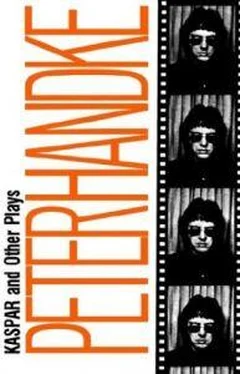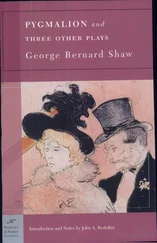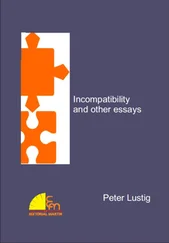Peter Handke - Kaspar and Other Plays
Здесь есть возможность читать онлайн «Peter Handke - Kaspar and Other Plays» весь текст электронной книги совершенно бесплатно (целиком полную версию без сокращений). В некоторых случаях можно слушать аудио, скачать через торрент в формате fb2 и присутствует краткое содержание. Год выпуска: 1970, Издательство: Farrar Straus Giroux, Жанр: Драматургия, на английском языке. Описание произведения, (предисловие) а так же отзывы посетителей доступны на портале библиотеки ЛибКат.
- Название:Kaspar and Other Plays
- Автор:
- Издательство:Farrar Straus Giroux
- Жанр:
- Год:1970
- ISBN:нет данных
- Рейтинг книги:4 / 5. Голосов: 2
-
Избранное:Добавить в избранное
- Отзывы:
-
Ваша оценка:
- 80
- 1
- 2
- 3
- 4
- 5
Kaspar and Other Plays: краткое содержание, описание и аннотация
Предлагаем к чтению аннотацию, описание, краткое содержание или предисловие (зависит от того, что написал сам автор книги «Kaspar and Other Plays»). Если вы не нашли необходимую информацию о книге — напишите в комментариях, мы постараемся отыскать её.
Waiting for Godot
In
and
, one-character "speak-ins," Handke further explores the relationship between public performance and personal identity, forcing us to reconsider our sense of who we are and what we know.
Kaspar and Other Plays — читать онлайн бесплатно полную книгу (весь текст) целиком
Ниже представлен текст книги, разбитый по страницам. Система сохранения места последней прочитанной страницы, позволяет с удобством читать онлайн бесплатно книгу «Kaspar and Other Plays», без необходимости каждый раз заново искать на чём Вы остановились. Поставьте закладку, и сможете в любой момент перейти на страницу, на которой закончили чтение.
Интервал:
Закладка:
We could do a play within a play for you. We could act out happenings for you that are taking place outside this room during these moments while you are swallowing, while you are batting your eyelashes. We could illustrate the statistics. We could represent what is statistically taking place at other places while you are at this place. By representing what is happening, we could make you imagine these happenings. We could bring them closer to you. We would not need to represent anything that is past. We could play a clean game. For example, we could act out the very process of dying that is statistically happening somewhere at this moment. We could become full of pathos. We could declare that death is the pathos of time, of which we speak all the time. Death could be the pathos of this real time which you are wasting here. At the very least, this play within a play would help bring this piece to a dramatic climax.
But we are not putting anything over on you. We don’t imitate. We don’t represent any other persons and any other events, even if they statistically exist. We can do without a play of features and a play of gestures. There are no persons who are part of the plot and therefore no impersonators. The plot is not freely invented, for there is no plot. Since there is no plot, accidents are impossible. Similarity with still living or scarcely dead or long-dead persons is not accidental but impossible. For we don’t represent anything and are no others than we are. We don’t even play ourselves. We are speaking. Nothing is invented here. Nothing is imitated. Nothing is fact. Nothing is left to your imagination.
Due to the fact that we are not playing and not acting playfully, this piece is half as funny and half as tragic. Due to the fact that we only speak and don’t fall outside time, we cannot depict anything for you and demonstrate nothing for you. We illustrate nothing. We conjure up nothing out of the past. We are not in conflict with the past. We are not in conflict with the present. We don’t anticipate the future. In the present, the past, and the future, we speak of time.
That is why, for example, we cannot represent the now and now of dying that is statistically happening now. We cannot represent the gasping for breath that is happening now and now, or the tumbling and falling now, or the death throes, or the grinding of teeth now, or the last words, or the last sigh now, that is statistically happening now this very second, or the last exhalation, or the last ejaculation that is happening now, or the breathlessness that is statistically commencing now, and now, and now, and now, and so on, or the motionlessness now, or the statistically ascertainable rigor mortis, or the lying absolutely quiet now. We cannot represent it. We only speak of it. We are speaking of it now.
Due to the fact that we only speak and due to the fact that we don’t speak of anything invented, we cannot be equivocal or ambiguous. Due to the fact that we play nothing, there cannot exist two or more levels here or a play within a play. Due to the fact that we don’t gesticulate and don’t tell you any stories and don’t represent anything, we cannot be poetical. Due to the fact that we only speak to you, we lose the poetry of ambiguity. For example, we cannot use the gestures and expressions of dying that we mentioned to represent the gestures and expressions of a simultaneously transpiring instance of sexual intercourse that is statistically transpiring now. We can’t be equivocal. We cannot play on a false bottom. We cannot remove ourselves from the world. We don’t need to be poetic. We don’t need to hypnotize you. We don’t need to hoodwink you. We don’t need to cast an evil eye on you. We don’t need a second nature. This is no hypnosis. You don’t have to imagine anything. You don’t have to dream with open eyes. With the illogic of your dreams you are not dependent on the logic of the stage. The impossibilities of your dreams do not have to confine themselves to the possibilities of the stage. The absurdity of your dreams does not have to obey the authentic laws of the theater. Therefore we represent neither dreams nor reality. We make claims neither for life nor for dying, neither for society nor for the individual, neither for what is natural nor for what is supernatural, neither for lust nor for grief, neither for reality nor for the play. Time elicits no elegies from us.
This piece is a prologue. It is not the prologue to another piece but the prologue to what you did, what you are doing, and what you will do. You are the topic. This piece is the prologue to the topic. It is the prologue to your practices and customs. It is the prologue to your actions. It is the prologue to your inactivity. It is the prologue to your lying down, to your sitting, to your standing, to your walking. It is the prologue to the plays and to the seriousness of your life. It is also the prologue to your future visits to the theater. It is also the prologue to all other prologues. This piece is world theater.
Soon you will move. You will make preparations. You will prepare yourself to applaud. You will prepare yourself not to applaud. When you prepare to do the former, you will clap one hand against the other, that is to say, you will clap one palm to the other palm and repeat these claps in rapid succession. Meanwhile, you will be able to watch your hands clapping or not clapping. You will hear the sound of yourself clapping and the sound of clapping next to you and you will see next to you and in front of you the clapping hands bobbing back and forth or you will not hear the expected clapping and not see the hands bobbing back and forth. Instead, you will perhaps hear other sounds and will yourself produce other sounds. You will prepare to get up. You will hear the seats folding up behind you. You will see us taking our bows. You will see the curtain come together. You will be able to designate the noises the curtain makes during this process. You will pocket your programs. You will exchange glances. You will exchange words. You will get moving. You will make comments and hear comments. You will suppress comments. You will smile meaningfully. You will smile meaninglessly. You will push in an orderly fashion into the foyer. You will show your hatchecks to redeem your hats and coats. You will stand around. You will see yourselves in mirrors. You will help each other into coats. You will hold doors open for each other. You will say your goodbyes. You will accompany. You will be accompanied. You will step into the open. You will return into the everyday. You will go in different directions. If you remain together, you will be a theater party. You will go to a restaurant. You will think of tomorrow. You will gradually find your way back into reality. You will be able to call reality harsh again. You will be sobered up. You will lead your own lives again. You will no longer be a unit. You will go from one place to different places.
But before you leave you will be offended.
We will offend you because offending you is also one way of speaking to you. By offending you, we can be straight with you. We can switch you on. We can eliminate the free play. We can tear down a wall. We can observe you.
While we are offending you, you won’t just hear us, you will listen to us. The distance between us will no longer be infinite. Due to the fact that we’re offending you, your motionlessness and your rigidity will finally become overt. But we won’t offend you, we will merely use offensive words which you yourselves use. We will contradict ourselves with our offenses. We will mean no one in particular. We will only create an acoustic pattern. You won’t have to feel offended. You were warned in advance, so you can feel quite unoffended while we’re offending you. Since you are probably thoroughly offended already, we will waste no more time before thoroughly offending you, you chuckleheads.
Читать дальшеИнтервал:
Закладка:
Похожие книги на «Kaspar and Other Plays»
Представляем Вашему вниманию похожие книги на «Kaspar and Other Plays» списком для выбора. Мы отобрали схожую по названию и смыслу литературу в надежде предоставить читателям больше вариантов отыскать новые, интересные, ещё непрочитанные произведения.
Обсуждение, отзывы о книге «Kaspar and Other Plays» и просто собственные мнения читателей. Оставьте ваши комментарии, напишите, что Вы думаете о произведении, его смысле или главных героях. Укажите что конкретно понравилось, а что нет, и почему Вы так считаете.












